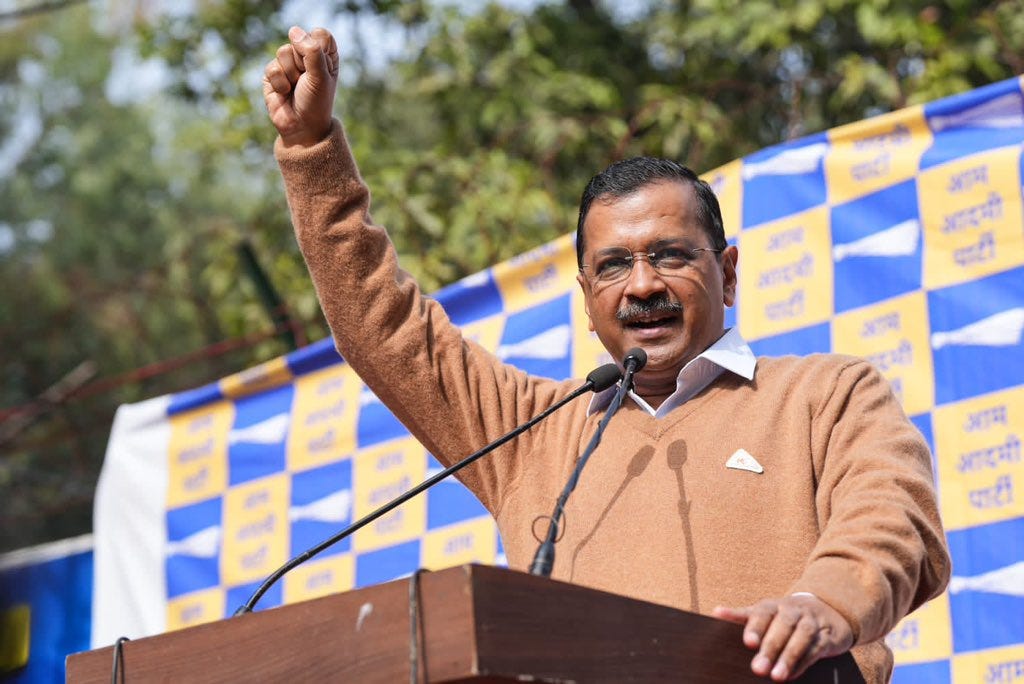Arvind Kejriwal Summoned as Accused on 17th February for Skipping ED Summons
These proceedings are distinct from ongoing trial before Special PMLA Court, which pertains to core Delhi Excise Policy Money-laundering case. Contains link to 9-page summoning order of Magistrate.
Legal Consequences Unfold
The Delhi Chief Minister, Arvind Kejriwal, today faced the first substantive legal consequence of his repeated non-compliance with five successive summons issued by the Enforcement Directorate (ED), that enjoined him to appear before the central probe agency. The ED had summoned him as part of its ongoing investigation into the money-laundering allegations connected with the Delhi Excise Policy scam.
Court's Decision
The Court of Additional Chief Metropolitan Magistrate, presided over by Divya Malhotra, today took formal cognizance of the fresh complaint that had been filed by the ED on February 2, under Section 190 (1)(a) of Cr.P.C. read with Section 200 of the Code, Section 174 of the Indian Penal Code, 1860, and Section 63 (4) of PMLA, 2002. As a result, Arvind Kejriwal was today summoned as an accused on February 17, 2024.
Observations by the Court
The Court observed that Arvind Kejriwal was legally bound to comply with the summons issued by the ED but purportedly failed to do so. It noted that the summons were addressed to Kejriwal at his official e-mail address, and their delivery was prima facie evidenced by the fact that he sent replies to them, setting out the reasons for his non-appearance. The Court also accentuated that persons summoned by the ED are bound to comply with the summons by virtue of Section 50(3) of the Act.
Those who want to peruse the complete and detailed 9-page order of the Additional Chief Metropolitan Magistrate dated February 7 may follow this link. Even a reader, not formally trained in law will be able to understand it.
ED's Allegations
The ED alleged that Arvind Kejriwal and other individuals conspired to implement the excise policy to provide extraordinary profit margins to certain private companies, without mentioning such stipulations in the minutes of meetings. Vijay Nair, acting on behalf of Kejriwal and Manish Sisodia, allegedly coordinated this conspiracy.
Political Ramifications
The issuance of summons to Arvind Kejriwal comes on the heels of the Delhi High Court's denial of bail to AAP MP Sanjay Singh today in the same money laundering case related to the Delhi excise scam. This development poses a significant challenge for Kejriwal and the Aam Aadmi Party (AAP) as they navigate the legal and political landscape.
Exploring Alternatives: Arvind Kejriwal's Options
One straightforward alternative available to Arvind Kejriwal would be to personally appear before the court on 17th February, seek bail, and contest the criminal complaint of ED. However, it is submitted that the court of the Additional Chief Metropolitan Magistrate will not have jurisdiction to rule over the legality of the five ED summons.
Challenging the Summons: Legal Avenue
Thus, the second alternative would be for Arvind Kejriwal to challenge the current summons issued by the judicial magistrate in a revision petition before a superior court or in the form of a writ petition before the Delhi High Court. In these proceedings, he could choose to impugn the current summons of the magistrate as well as the five distinct summons issued by the Enforcement Directorate.
Potential Legal Battles: Implications
It is, however, important to note that in the event no interim relief is granted by the superior court, Mr. Kejriwal would have little choice but to appear before the Additional Chief Metropolitan Magistrate on February 17 and answer the charges leveled by the ED regarding non-compliance of summons, as well as potentially to appear before the Enforcement Directorate and get his statement recorded.
Unforeseen Developments: Uncertain Future
This is, however, only in the realm of possibilities and speculation, and the events may unfold in an entirely unforeseen manner.
Summing Up
The legal confrontation between Arvind Kejriwal and the ED underscores the complexities of governance and accountability in the Indian political landscape. As the case unfolds further, it remains to be seen how Kejriwal and the AAP respond to these legal challenges and their implications for the future of Delhi politics as well as the campaign for the 2024 Lok Sabha elections.





